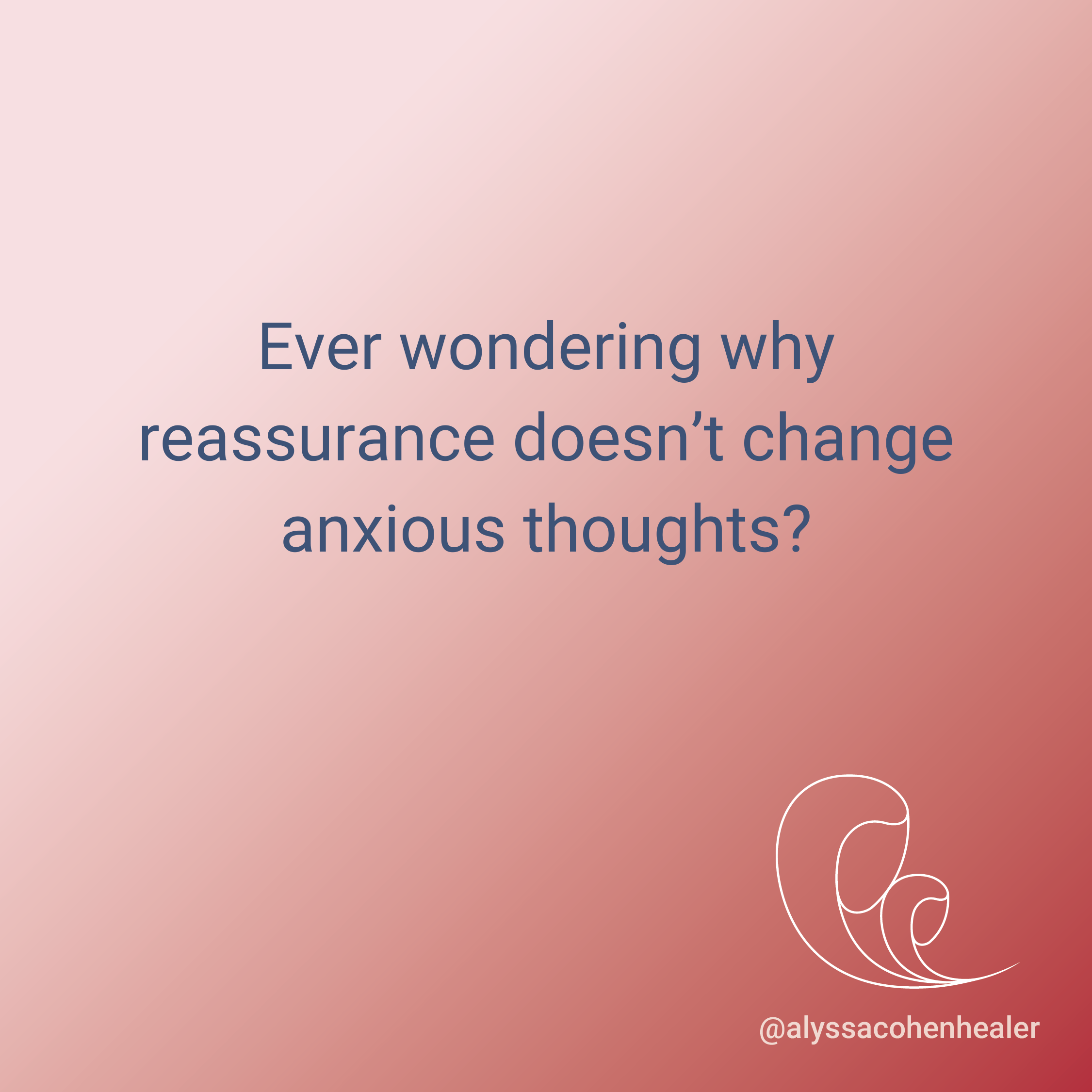Ever wondering why reassurance doesn’t change anxious thoughts?
Have you heard this kind of reassurance advice for managing symptoms of anxiety?
“My brain just has fearful thoughts when I’m driving, there’s nothing to worry about.”
“This strained breathing is just a sensation, it’s not dangerous.”
“This heartburn and indigestion is how my body reacts to worry, it’s okay.”
But is it okay to regularly have fearful thoughts, strained breathing and indigestion?
I don’t think so but anxiety is so heightened right now that it's easy to normalize these struggles.
It’s a good idea to accept what’s happening in any moment, notice sensations and thoughts, and remind yourself that you’re not in danger.
But then what?
If you practice this kind of reassurance it may help temporarily but you’ll likely need to distract yourself in order to carry on.
You can’t actually bypass anxiety in the long run. Within those symptoms, there’s a part of you that needs care and attention.
When you stop reassuring yourself that all is well and start attuning to the part of you who’s suffering, with good reason, it will shed light on all the symptoms that are bothering you. Then, you can focus on a new kind of self-care.
Let’s consider an example of a woman who has a nervous stomach when she has to present at work. She doesn’t sleep the night before, wakes with a headache and sweats all morning leading up to the meeting.
She could tell herself, “These symptoms are just what happens when you present, you’ll be fine, you know your stuff!” This reassurance might help a little but it won’t heal the issue.
When we look deeper at this woman’s life story, we learn that she was frequently criticized as a child, especially when she got anything wrong at school. Isn’t it natural to assume that as an adult she might be nervous in new work situations? It makes sense that she’d be afraid of judgment.
Imagine if she took some quiet time with herself to breathe deeply and connect to the part of her that’s scared. With presence and genuine compassion she’d say to herself, “I see that you’re feeling nervous about this presentation {pause}... I understand why you’d be scared of how people will react. It makes sense that you’re feeling anxious… {pause}... I’m here with you.”
It might seem odd but this type of inner dialogue can soothe you at a deep level of your psyche.
Anxiety can be unlearned, if you know how to be with yourself.

